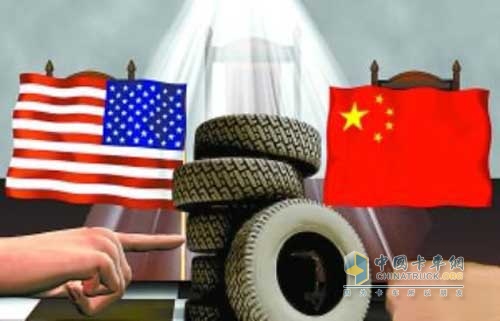“This can also be a reason for anti-dumping and countervailing?†Seeing the US’s application of “double reverse†to Chinese tires, there were allegations of “key technological transformation projects†and “brand-name productsâ€. The tire company in Shandong was old. Wang was taken aback. "What is the relationship between the technical renovation and the brand-name products and dumping and subsidies?" Not only did Pharaoh have such confusion, many domestic companies expressed incomprehension or anger at the projects when they saw the list of accusations alleged by the United States. Deng Yachen, president of the China Rubber Industry Association, believes that from the "double reverse" application project, it can be seen that this is a change in the United States to set trade barriers for Chinese tires. The reasons for allegations are "various" On June 3, the US Steel Workers Union (USW) filed an application with the US Department of Commerce and the US International Trade Commission requesting the initiation of anti-dumping and countervailing investigations on passenger and light truck tire products from China. The reason is that the large increase in China’s tire imports will undermine the interests of US tire companies and affect the jobs of local workers. According to the accusation application form received, in addition to some export subsidies, even export financing and export credit guarantees have become the alleged names. In addition, the state's key technological transformation projects, brand-name products, special funds for energy-saving technological transformation, and funds for clean technology products, etc., are all well-known on this list, and the reasons for the allegations can be described as "variety." According to statistics, this accusation involved a total of 36 subsidy items in eight categories including concessional loans, export financing, and export credits. “The accusation has listed many of the taxation and fee policies that may be involved in Chinese tire companies. Some of them are far-fetched,†said one expert from the original trade department of the Ministry of Commerce. The expert explained that taking export credit guarantee as an example, in fact, such a guarantee has a particularly large risk, and general commercial insurance companies are reluctant to operate such insurance, so they have to rely on government support to operate. This is true in many countries, and the United States has used this as an excuse for countervailing. He feels that the U.S.’s unfounded accusations of harming people are not good for themselves. Corresponding to the opinions of experts, the United States Tire Industry Association objected to the accusation and believed that the implementation of “double counter†measures against Chinese tires would disrupt the US tire market. Involving almost all Chinese tire companies According to the allegations in countervailing projects, the US’s "double opposition" goal is aimed at almost all Chinese tire exporters. “Government allocations for Fengshen Tire, government grants for dual-tire tires, government grants for Giti Tire, government grants for Guizhou Tire, government funding for Qingdao Double Star, grants for Race Wheel Group...†Most of the major tire companies are among them. According to relevant sources, it is estimated that there are more than 1,000 companies involved. Xu Wenying, vice chairman and secretary-general of the China Rubber Industry Association, pointed out that the "double reverse" case has three salient features. First, the amount involved is large. The tire special security case in 2009 involved a total of 2.1 billion U.S. dollars, this time being more than 3.3 billion U.S. dollars, which is the largest amount of trade remedy measures taken by the Chinese tire industry. The second is a long duration. The three-year high tariff expired on the tire special security case, and the “double reverse†review was carried out five times a year. The previous “non-road†tires for non-road use cases are typical examples, and it has been seven years since the case was filed in 2007. The third is the great intensity of sanctions. The maximum tariff for tires in special security cases is 35% in the first year, and the dumping rate claimed by the applicants is as high as 60.15%, and the subsidy rate is 25%, which is indeed unprecedented. It is understood that so far, the United States has not yet initiated the case, but the US Department of Commerce will decide whether to file a case in the near future. Xu Wenying also reminded domestic tire companies that the EU may follow suit in the United States to take corresponding actions. Therefore, companies should make plans in advance. 